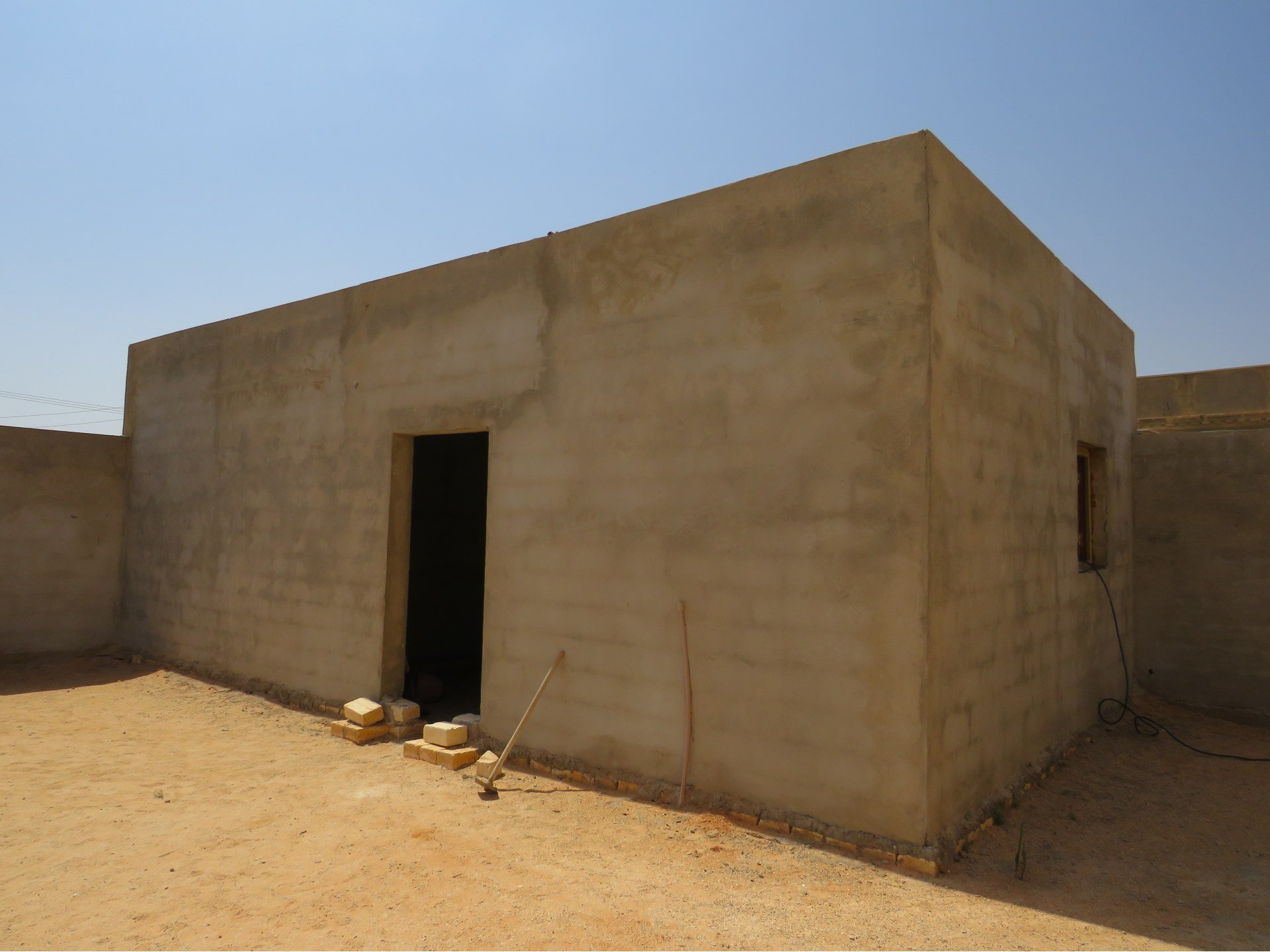Wagner's Prigozhin and Libya's Haftar face lawsuit over alleged extrajudicial killings

A Libyan national has filed a lawsuit in the US against Libyan eastern commander Khalifa Haftar and Yevgeny Prigozhin, the founder of the Russian paramilitary group Wagner, accusing the group of extrajudicially killing several members of his family.
Mohammed Aboujaylah Ali Anbees, the plaintiff in the case, claimed in the lawsuit filed on Tuesday that Wagner mercenaries in Libya killed three members of his family in 2019 after detaining them in Tripoli.
Anbees says in the lawsuit that he is only alive because he played dead after Wagner fighters fired bullets towards him and his family.
"Anbees had to lay on the ground in pools of the blood of his family members until he heard the Wagner soldiers get back in the vehicle and drive away," the lawsuit states.
Middle East Eye first reported the story of what happened to Anbees and his family in 2020, and Anbees had said at the time that the armed men were "speaking clearly in Russian".
Stay informed with MEE's newsletters
Sign up to get the latest alerts, insights and analysis, starting with Turkey Unpacked
Anbees is seeking compensation under the Torture Victim Protection Act of 1991, which allows non-US citizens to seek compensation from individuals who, acting in an official capacity for any foreign nation, allegedly committed torture or extrajudicial killings.
The plaintiff, who is a Libyan citizen and remains in the country, has tried filing complaints against Haftar in Libyan court. However, these efforts have led Anbees to be targeted by Haftar as a "wanted" man.
'Anbees had to lay on the ground in pools of the blood of his family members until he heard the Wagner soldiers get back in the vehicle and drive away'
- lawsuit
"It is essential that we provide an avenue to bring justice to his family members and to highlight the fact that this is going on and the Wagner Group continues to commit these atrocities and Haftar continues to sponsor these atrocities," Tanya Munson, an attorney with the Libyan American Alliance (LAA), which helped bring the lawsuit forward, said during a news conference on Tuesday.
Multiple families have filed lawsuits against Haftar in US courts, in which he is accused of torturing and killing their relatives.
Haftar, who has been a Virginia resident for decades, tried to have the lawsuits tossed out under the claim of immunity as head of state. However, his attempts have been unsuccessful.
This is the first time that Prigozhin has been sued alongside Haftar in a US court. It remains unclear what impact the lawsuit could have on Prigozhin, who has no known US assets that could be seized.
The lawsuit also comes after the Wagner Group's failed uprising against the Russian government last month, leaving the future of Prigozhin hanging in the balance.
Wagner in Libya
The Wagner Group had built a spider's web of military, business and political relationships over the past decade, which encompass Libya, Syria, Sudan, and the United Arab Emirates.
Combatants from the group were sent to Libya to prop up Haftar’s Libyan National Army (LNA) as it struggled to seize Tripoli from the UN-recognised Government of National Accord (GNA) in 2019.
In 2019, Haftar mounted a 14-month campaign to take control of the country's capital, Tripoli. Fighting soon devolved into a proxy conflict with his LNA receiving support from Russia, the United Arab Emirates, Egypt, Chadian and Sudanese fighters, as well as other mercenary groups.
At any one time, up to 1,000 mercenaries from the secretive Wagner group were on the ground in Libya during the fighting from September 2019 to July 2020, according to a BBC investigation. The killing of Anbees' family members happened between 23-24 September 2019, according to the lawsuit.
According to the lawsuit, on 23 September 2019, Anbees and several of his male relatives were driving near their family home in Esbia, a village about 30 miles from Tripoli, where they were staying to avoid Haftar's military assault on Tripoli.
The family members were detained by armed men Anbees claims were members of the Wagner Group.
The lawsuit says that Anbees determined them to be from Wagner because "the men had blue eyes, were handling their weapons like professionals, drove a unique model of vehicle, and because there was a widespread presence of the Wagner in the area at that time".
During the detention, none of the militiamen responded to family members' questions in Arabic and only asked in broken English whether the family had ties to the Islamic State group.
The armed men then transported the men to several different locations before firing upon them "haphazardly". Anbees' father, brother, and brother-in-law were killed in the shooting.
“I was the last to be lined up. Then they sprayed us with bullets. I threw myself down and pretended I was dead,” Anbees previously told MEE.
The new lawsuit could add to the ongoing legal pressure that Haftar is facing in the US. Last July, a federal judge ruled that Haftar was found liable for war crimes in another lawsuit supported by the LAA.
After the judge's ruling, Middle East Eye reported that Haftar had begun liquidating his assets in the US, including selling a multimillion-dollar Virginia home, along with a townhouse and other six-figure properties.
Middle East Eye delivers independent and unrivalled coverage and analysis of the Middle East, North Africa and beyond. To learn more about republishing this content and the associated fees, please fill out this form. More about MEE can be found here.






